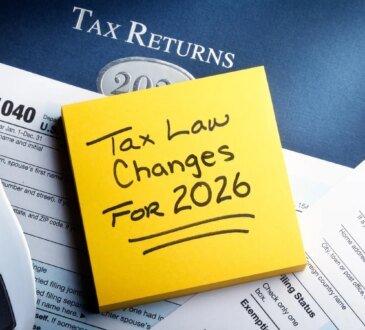Dr. Stephen Akintayo is Forbes Best of Africa Leading Investment Coach and Real Estate Mogul. Chairman and Founder, Gtext Holdings.
I still remember the first time I realized that real estate was not just about owning land; it was a way to build wealth. Growing up, I saw people struggle with finances, yet the wealthiest individuals seemed to have one thing in common: owning properties. But not just any properties—they owned strategically located real estate in cities beyond their home countries.
That’s when I knew that the key to real estate success wasn’t just investing in your local market; it was thinking globally. Today, I’ve built a real estate empire spanning multiple continents, and I can tell you this: Global real estate investment is a strategy investors can use to create financial freedom—if approached strategically and with careful consideration for risks.
The Power Of A Global Mindset
Many people limit their real estate ambitions to their home country. While starting locally is great, staying confined to one market can be a missed opportunity. Why? Economies fluctuate, currencies rise and fall, and real estate values shift. Diversification across different regions can help minimize risk and maximize returns.
For example, an investor who owned property only in a single country during an economic downturn might suffer significant losses. However, someone with assets in multiple markets can balance out risks; if one market dips, another might be thriving. This is the mindset that I believe separates local landlords from global real estate moguls, and it’s one I’ve adopted firsthand.
When I first started with real estate investing, I focused on my home market in Nigeria. But I quickly realized that while my portfolio was growing, I was limiting my wealth potential. That’s when I expanded into Dubai, the U.S. and the U.K.
I remember purchasing my first property in Dubai. The process was different, the legal requirements were stricter, and I had to navigate a new financial system. But once I did, I saw the potential of global investment, property appreciation, steady rental income and a diversified portfolio that could weather economic fluctuations.
How To Identify The Right Market
Today, I help others expand their portfolios. Something I’ve learned is that investing in global real estate is not about jumping into every market you hear about. It requires strategy. Here are some key factors to consider:
1. Economic Stability
Before investing in any country, research its economic stability. A growing economy often means rising real estate values, increasing rental demand and better long-term returns.
2. Property Laws And Foreign Investment Policies
Not every country allows foreign investors to own property freely. Some require partnerships with local citizens, while others have high taxation on foreign-owned real estate. Before diving in, ensure you understand the legal landscape to avoid complications.
3. Currency Strength And Inflation
Currency fluctuations can either increase or decrease your profits. Investing in a country with a stable or appreciating currency can protect your wealth. For instance, someone who bought property in Dubai when the dirham was strong would have a more secure investment than someone who invested in a highly volatile market.
4. Demand And Rental Yield
A beautiful property in the wrong location won’t generate returns. Study population growth, job opportunities and rental demand. Cities with a strong expatriate community or business hubs often offer high rental yields. Places like London, New York and Toronto often attract international tenants who are willing to pay premium rent.
Mistakes To Avoid
Success when investing internationally isn’t guaranteed. Many investors rush into global markets without proper research, and I’ve seen them make costly mistakes. Here are a few traps to avoid:
Investing Without Local Knowledge
You wouldn’t buy property in your home country without knowing the area, so why do it abroad? Partner with local experts, real estate agents and attorneys who understand the market.
Ignoring Taxation Laws
Every country has different tax policies on real estate. Some have capital gains tax, others have high property taxes, and some impose inheritance taxes. If you don’t plan for this, your returns could be significantly reduced.
Over-Leveraging With Foreign Loans
While financing options exist for global investors, some countries charge high interest rates to foreign buyers. In some cases, it might be smarter to raise capital in your home country before purchasing internationally.
Buying Based On Emotion, Not Strategy
I’ve seen investors buy properties in cities they fell in love with during vacations, only to realize later that the rental market was weak. A profitable investment should be based on numbers, not emotions.
The Future Of Global Real Estate Investment
The world is changing. With remote work becoming more common, more people have the flexibility to move to different countries. Additionally, emerging markets can present new opportunities for early investors. Technology is also making it easier to invest globally. With blockchain and real estate crowdfunding, people can now own fractions of properties worldwide.
The world is waiting. By keeping these best practices—and potential pitfalls—in mind, you can ensure you’re ready to start investing.
The information provided here is not investment, tax or financial advice. You should consult with a licensed professional for advice concerning your specific situation.
Forbes Business Council is the foremost growth and networking organization for business owners and leaders. Do I qualify?




